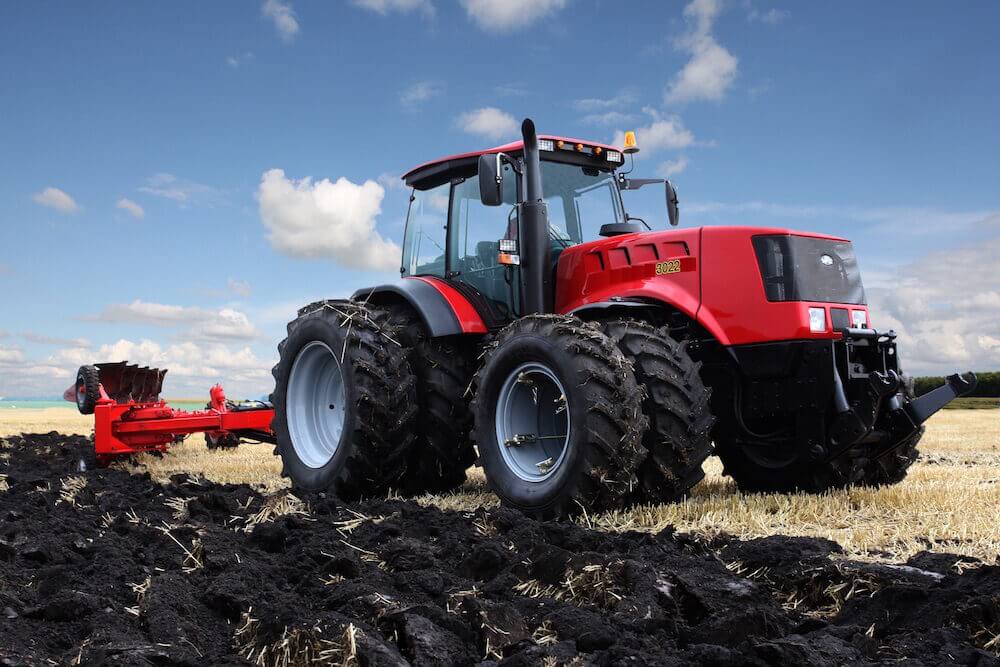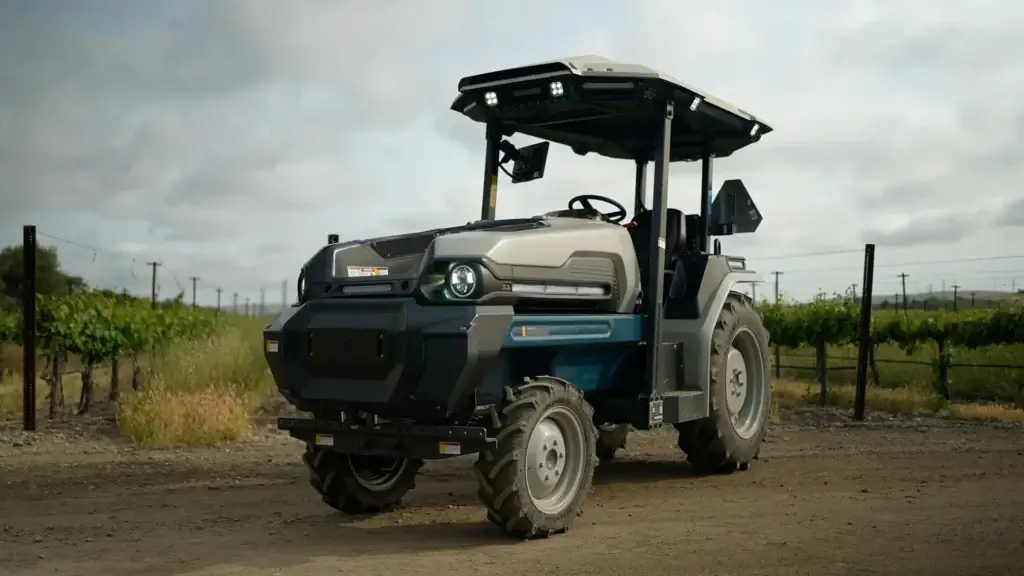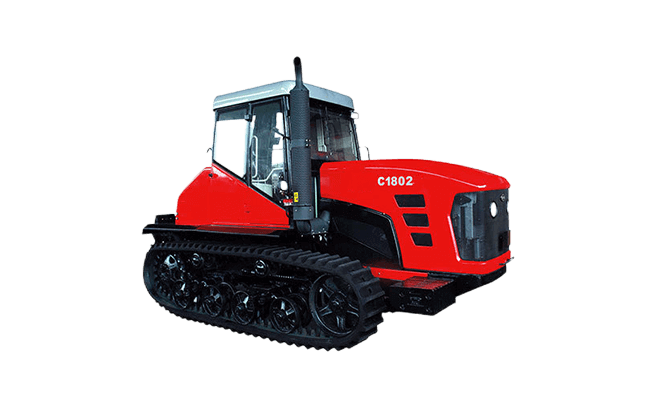In modern farming, fuel efficiency and fuel type have become critical factors when selecting track-type tractors. With increasing pressure to minimize costs, reduce environmental impact, and optimize operational performance, understanding how different fuel types and efficiency features influence tractor selection is crucial for farmers. Choosing the right tractor with optimal fuel efficiency can result in long-term cost savings, improved sustainability, and enhanced farm performance.
Many farmers face challenges in selecting the most suitable track-type tractor based on fuel efficiency and fuel type. The wrong choice can lead to increased operational costs, higher fuel consumption, and a significant environmental footprint. With various options available—such as diesel, electric, and hybrid-powered tractors—it’s essential for farmers to make an informed decision that balances power needs, cost, and environmental impact. This decision also directly affects the tractor’s performance over the long term, influencing the farm’s bottom line and sustainability practices.
This article provides a comprehensive guide to help farmers understand the key considerations when selecting track-type tractors based on fuel efficiency and fuel type. By focusing on practical implications for everyday farm operations, we aim to guide farmers in making informed choices that not only meet their immediate operational needs but also align with long-term sustainability and cost-effectiveness goals. Keep reading to learn how choosing the right fuel type can improve farm efficiency, reduce costs, and contribute to a more sustainable farming operation.
Contents
1. Fuel Type Considerations in Selecting Track-Type Tractors
Diesel Tractors: A Reliable Choice
Overview:
Diesel engines have been the traditional choice for track-type tractors due to their high power output and fuel efficiency. Diesel-powered tractors are especially favored for heavy-duty tasks that require constant, reliable performance in challenging conditions.
Advantages:
High Energy Density: Diesel engines are more fuel-efficient than many other fuel types, providing higher power output for demanding tasks such as plowing, hauling, and tilling. This high energy density is a key reason why diesel remains a preferred option for large-scale agricultural operations.
Availability and Reliability: Diesel is widely available, especially in rural and agricultural regions. This makes it a practical choice, as farmers can easily access fuel without the need for specialized refueling infrastructure.
Long Operational Hours: Diesel engines are ideal for long shifts, which are often required during busy planting, harvesting, or cultivation seasons. Diesel-powered tractors are built to handle extended operational hours without significant risk of overheating or engine wear.
Challenges:
Higher Emissions: Diesel engines contribute to air pollution by emitting CO2, nitrogen oxides, and particulate matter. This is a growing concern as farming practices shift towards more sustainable, eco-friendly methods of operation.
Fuel Cost Volatility: Diesel prices can fluctuate due to market and geopolitical factors, which may lead to increased operational costs, especially for farms with extensive machinery usage.
Best Use Cases:
Diesel-powered tractors are best suited for large-scale farming operations with heavy-duty requirements, where long hours of operation and consistent power output are critical. They are particularly useful for farms located in areas where diesel is readily available and cost-effective.

Electric and Hybrid Tractors: The Future of Sustainability
Overview:
As the global agricultural industry shifts towards more sustainable practices, electric and hybrid-powered tractors are becoming increasingly popular. These options offer farmers an alternative to traditional fuel types, with lower emissions and reduced reliance on fossil fuels.
Advantages:
Lower Emissions: Electric and hybrid tractors produce fewer greenhouse gas emissions compared to their diesel counterparts, helping to reduce a farm’s carbon footprint. This is particularly beneficial for farmers aiming to meet stricter environmental regulations and sustainability goals.
Reduced Fuel Costs: Electric tractors are less dependent on traditional fuels, which significantly reduces long-term fuel expenses. The availability of subsidies and incentives for renewable energy use can also make these tractors more financially attractive for farmers.
Quiet Operation: Unlike diesel engines, which can be noisy and disruptive, electric tractors operate quietly, minimizing noise pollution. This creates a more comfortable working environment, particularly in noise-sensitive areas like residential zones or organic farms.
Challenges:
Limited Range and Power: While electric tractors are great for smaller, less demanding tasks, their limited range and power output make them less suitable for heavy-duty operations. Extended operating hours may require access to charging infrastructure or hybrid systems to support longer shifts.
High Initial Cost: Electric and hybrid tractors tend to have a higher upfront cost compared to diesel models. Although long-term fuel savings can offset the initial investment, the high purchase price may be a barrier for some farmers.
Best Use Cases:
Electric and hybrid tractors are ideal for small to medium-sized farms that prioritize sustainability and lower emissions. They are particularly effective in areas with reliable charging infrastructure or for farms seeking to reduce their environmental impact while benefiting from the latest advancements in technology.

2. Fuel Efficiency: A Key Factor in Tractor Selection
Impact of Fuel Efficiency on Operational Costs
Fuel Consumption vs. Output:
Fuel efficiency is a pivotal factor in choosing track-type tractors, as it directly impacts both operational costs and overall farm profitability. Efficient fuel consumption means that less fuel is used for the same or even greater output, thereby lowering operating expenses.
Lower Fuel Consumption: Tractors with high fuel efficiency reduce the amount of fuel needed per task, making them a cost-effective choice for long-term operations. This is particularly important in high-demand seasons when fuel costs can escalate rapidly.
Maximized Output: By optimizing fuel use, a tractor can maintain high performance without the need for excessive fuel input, ensuring that every drop of fuel contributes to maximum work output. This is especially relevant in tasks like tilling, hauling, or plowing, which require significant energy.
Case Study: When comparing two track-type tractors—one fuel-efficient and one not—the fuel-efficient tractor reduces fuel consumption by 15-20% over a season, offering substantial cost savings. This saving, accumulated over multiple seasons, can be a significant investment return for large-scale farmers.
Impact on Profitability:
Fuel efficiency plays a crucial role in reducing operational overheads, making it especially important for larger-scale farms where fuel costs form a significant part of the annual budget. Choosing a tractor with better fuel economy allows for better budgeting and forecasting, ultimately leading to higher profitability.
Cost Savings in Long-Term Use: With the rising cost of fuel, selecting a fuel-efficient tractor is an investment in long-term savings. In large-scale farming, where machinery is used extensively, this reduction in fuel consumption translates directly into lower operating costs and better bottom-line performance.

Technology and Innovations in Fuel Efficiency
Common Fuel-Efficient Technologies
Variable Speed Drives (VSD): One of the most effective ways to reduce fuel consumption is through the use of Variable Speed Drives. VSDs help regulate the engine speed based on the workload, optimizing power and ensuring that the engine operates at its most efficient speed.
How It Works: Rather than running the engine at a fixed speed, VSDs adjust the speed based on the real-time needs of the tractor, allowing it to operate more efficiently during lighter tasks while still maintaining the necessary power for heavy-duty operations.
Impact on Fuel Consumption: By reducing unnecessary engine speeds, VSDs can lower fuel consumption without sacrificing tractor performance, making them ideal for versatile, variable workload environments.
Eco-mode Options: Many modern tractors come equipped with eco-mode settings that adjust the engine’s power output to match operational conditions. These settings allow the tractor to use fuel more efficiently, reducing wastage and improving long-term cost savings.
How Eco-Mode Helps: During tasks that do not require maximum power (e.g., light tilling or hauling), eco-mode limits fuel consumption by adjusting the throttle response, keeping the engine in an optimal fuel-efficient range.
Impact on Operations: Eco-mode settings ensure that the tractor’s engine is always running at its best possible efficiency, making them a great option for farmers looking to balance power needs and fuel economy.
Fuel Injection Systems: Modern fuel injection systems have advanced considerably, providing a more precise fuel delivery system. These systems are designed to inject fuel directly into the combustion chamber at optimal pressure, improving combustion efficiency and reducing fuel wastage.
How It Works: Unlike older mechanical systems, modern fuel injection technology uses electronic sensors to control the timing and amount of fuel injected into the engine, ensuring more efficient combustion and reducing the amount of unused fuel.
Impact on Fuel Economy: Better combustion leads to reduced fuel consumption, higher engine performance, and lower emissions, which directly benefits both the farmer’s budget and the environment.
Impact of Fuel-Efficient Technology:
Incorporating fuel-efficient technologies into track-type tractors allows farmers to achieve better fuel economy without sacrificing power or efficiency. These technologies enhance overall performance by ensuring that every unit of fuel is used as efficiently as possible, improving both the short-term and long-term viability of farm operations.
3. Matching Fuel Type and Efficiency to Farm Needs
Assessing Farm Size and Scope
Small Farms:
For small-scale farms with less demanding power needs, selecting a tractor with lower fuel consumption and reduced emissions is essential for minimizing operational costs. Electric or hybrid tractors are becoming increasingly popular in these environments due to their lower running costs and positive environmental impact.
Benefits: Electric and hybrid models are particularly beneficial for small farms that do not need heavy-duty machinery. They offer quieter operation, lower fuel costs, and fewer emissions, making them well-suited for farmers looking to reduce their carbon footprint and long-term expenses.
Use Case: Small organic farms or those focusing on sustainable farming practices can greatly benefit from electric and hybrid options, reducing both fuel consumption and maintenance costs.

Large Farms:
Large-scale farming operations typically involve higher energy demands due to the extensive use of machinery for various tasks such as tilling, plowing, and harvesting. Diesel-powered, high-efficiency tractors are generally better suited for these needs, providing powerful performance with relatively lower operational costs when compared to gas or electric models.
Benefits: Diesel engines offer better power density, making them ideal for large farms that require the consistent power needed for demanding tasks. They are capable of running longer hours without the need for frequent refueling, which is crucial during peak seasons like planting and harvesting.
Use Case: Large-scale farms with high tillage requirements or those managing extensive field areas would benefit from the high power output and extended operational range offered by diesel-powered track-type tractors.
Long-Term Considerations:
When selecting a fuel-efficient tractor, it is crucial to consider how the choice of fuel type and engine technology will affect the farm’s operational strategy in the long run. Fuel prices, environmental regulations, and technological advancements can significantly influence the total cost of ownership.
Future-Proofing: As fuel prices fluctuate and environmental regulations become stricter, it is wise to consider tractors with adaptable fuel systems, hybrid engines, or electric capabilities to meet future demands for efficiency and sustainability.
Impact: Farms planning for long-term sustainability should weigh the upfront cost of electric or hybrid tractors against their potential for lower running costs, fewer emissions, and compliance with stricter environmental policies.

Type of Work and Terrain
Heavy-Duty Tasks:
Farms that require robust tractors for tasks like tilling, plowing, and hauling, particularly in challenging soil conditions or for high-torque applications, should prioritize fuel-efficient diesel-powered tractors or hybrids.
Benefits: Diesel engines are known for their high torque and power, making them ideal for heavy-duty applications. Combining fuel efficiency with the ability to handle tough tasks, they can maintain high performance even in difficult field conditions.
Use Case: Farms dealing with heavy tillage, large-scale hauling, or continuous plowing benefit from diesel-powered, high-efficiency tractors. These tasks require sustained power and efficiency, which diesel engines can provide over long hours of work.
Sensitive Environments:
Farms operating in environmentally sensitive or urban areas need to consider the emissions profile of their equipment. Electric or hybrid-powered tractors are ideal for reducing carbon footprints and complying with stricter emissions standards, making them suitable for farms located near urban centers or areas with emission regulations.
Benefits: Electric and hybrid tractors produce zero emissions during operation, reducing the environmental impact. They are also quieter, which is an advantage in sensitive areas where noise pollution could be a concern.
Use Case: Farms focused on sustainable practices, organic farming, or those located in urban agricultural zones should opt for electric or hybrid tractors to meet both regulatory standards and environmental goals.
Terrain Considerations:
Farmers working in challenging terrains, such as hilly landscapes, wetlands, or rough soil, require equipment that can maintain fuel efficiency while providing the necessary power to tackle uneven ground.
Benefits: Track-type tractors with superior fuel efficiency are designed to perform well across a wide range of terrains. With tracks that distribute weight evenly, they can prevent soil compaction and maintain traction, ensuring consistent performance even on rugged terrain.
Use Case: Farms with diverse terrains, such as mountainous regions or areas with steep slopes, benefit from track-type tractors that provide stability and fuel efficiency, even under challenging conditions. Additionally, the ability to reduce fuel consumption on such terrains makes them a more sustainable choice for long-term operations.
Conclusion
When selecting a track-type tractor, it’s essential to consider both fuel type and efficiency, ensuring that the tractor meets the specific needs of your farm and supports your long-term sustainability goals. Whether you’re managing a small farm with an emphasis on reducing emissions, or a large-scale operation that requires heavy-duty power, the right tractor can significantly affect both productivity and operating costs.
Farmers should assess their farm’s unique requirements, including the type of work, terrain, and environmental impact, to make an informed decision about the most suitable fuel type and efficiency options. By evaluating power consumption, fuel usage, and environmental concerns, farmers can select the most efficient machinery to meet their operational and sustainability goals.
MINNUO’s range of fuel-efficient, high-performance track-type tractors offers farmers reliable and cost-effective solutions tailored to both short-term operations and long-term sustainability. With MINNUO’s advanced technology, farmers can improve productivity, reduce fuel costs, and contribute to a cleaner, more sustainable farming future.

